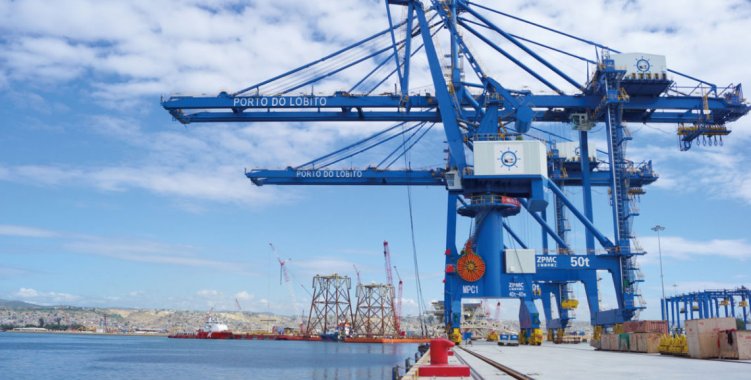The container terminal in the Port of Lobito is, since last Monday, benefiting from energy from the public grid, with the entry into operation of an energy transformation station.
This station, which started eight years after it was inaugurated, has a capacity of 15 kilovolts and will ‘illuminate’ the light poles to simplify work at night. In addition, it will also make the heaviest cranes work.
This equipment had an investment of around 65 million kwanzas, according to Joaquim Sobrinho, administrator for the technical and security area of that port company, quoted by Angop.
In turn, José Lopes, director of high and medium voltage operations at the National Energy Distribution Company (ENDE), explained that “the public network in Lobito and Benguela uses two types of voltage, which are 30 and 20 kilovolts, while in the port a system of only 15 kilovolts is installed”.
“Fortunately, the equipment with this capacity was found and the problem was overcome”, he said, also quoted by Angop.
Celso Rosas, chairman of the Board of Directors of Porto do Lobito, considered that this measure will help the company to save on “energy costs”, as around 50 million kwanzas were disbursed annually in fuel and other fluids for generators.
Thus, he indicated that per year they will be able to save about 30 million kwanzas. “With this investment, Porto will significantly reduce energy costs, saving an estimated value of 30 million kwanzas annually, which will be directly reflected in the services provided to our customers”, he said, also quoted by Angop.
He also took the opportunity to explain that the company sells services and that the value of energy ends up weighing in the final bill. In other words, with the company operating only with generated energy, its services had a higher value, helping a lack of competitiveness on the part of the company.
He ended by mentioning the impacts of covid-19 and exchange rate fluctuations that, according to the official, had a negative influence on revenues, since port fees are indexed to the dollar, writes Angop.
To find a solution, the Board of Directors had to proceed with priority investment in the public network for the operation of the terminals (containers, ore carriers and Porto Seco).
![]()




